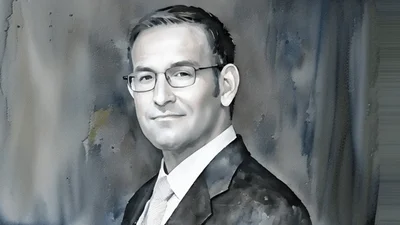Timothy Lee, Senior Vice President of Legal and Public Affairs at the Center for Individual Freedom | Dan Ikenson, founder of Ikenomics Consulting | Facebook | (27) Dan Ikenson | LinkedIn
A new post-Chevron conversation about regulatory “overreach” is growing in Washington. The U.S. Supreme Court’s June ruling in Loper Bright Enterprises v. Raimondo ended the so-called “Chevron deference,” which granted federal agencies broad discretion to interpret laws, provided their interpretation was "reasonable." In Loper, the Court determined that it is the judiciary’s role to interpret statutes, not federal agencies.
Experts Timothy Lee, Senior Vice President of Legal and Public Affairs at the Center for Individual Freedom, and Dan Ikenson, founder of Ikenomics Consulting, share their perspectives on post-Chevron approaches, with specific focus on the Federal Trade Commission, the government’s view of “junk fees” that irritate consumers, and what they describe as the regulatory state.
Lee’s legal career spans labor, employment, and commercial litigation. Since joining the Center for Individual Freedom in 2006, he has championed constitutional rights, free markets, and international liberty.
Ikenson, who founded Ikenomics Consulting, has decades of experience in trade policy and economics and previously held leadership roles at the Cato Institute and the Asia Society Policy Institute.
Lee and Ikenson believe the FTC under Chair Lina Khan has adopted an activist approach, by which they mean she has let the agency exceed its mandate.
"The FTC is becoming more aggressive and trying to expand its powers," Lee says. "They're engaging in activities that are likely to get thrown out in court,” he says, referencing Loper. As a result, Lee describes the FTC as “wasting countless judicial and financial resources."
Ikenson points to a broader trend across regulatory agencies. "Executive power grabs have been growing for decades, but this administration has taken it to an extreme," he says, referencing the mounting costs and inefficiencies the actions impose on the economy.
A Controversy Over “Junk Fees”
Junk fees, a term coined to describe add-on and onerous charges consumers face on routine services, have become a battleground for regulatory action. Lee views the term as misleading.
"The very term ‘junk fee’ is a misnomer,” he says. “The fees often offer consumers choices and lower overall prices — eliminating them would artificially inflate costs."
Ikenson criticizes the administration's populist framing of junk fees as a war on greed. "This misunderstands economics and pricing,” he says, and argues that “annoyances like these fees shouldn't justify federal interference.
Ikenson and Lee advocate for what they say should be a “balanced” regulatory environment that avoids adversarial extremes. "We need guardrails, not crony capitalism," Ikenson says.
Lee adds, "In an ideal world, there would be cooperation between regulators and businesses to reduce the need for litigation. However, when regulations cross the line, they lead to unintended consequences."
One major concern is the administrative courts within agencies like the FTC. Lee describes them as functioning as "judge, jury, and executioner," a setup he argues undermines fair governance. "Our system is not designed for unelected officials to impose dictates without accountability," he says.
Both experts warn of the broader economic consequences of overregulation. Ikenson says, "When businesses can't differentiate prices creatively, it stifles innovation and raises costs for everyone."
Lee concurs, saying that such interventions often result in higher prices and reduced consumer choice.
Legal challenges loom over many of the FTC’s current initiatives. "These proposals are at the early stages," Lee says, "but I can almost guarantee that they will face significant legal pushback and likely be thrown out."
For Ikenson, addressing these issues requires more than court battles. "Congress needs to legislate judiciously, reducing the regulatory code and providing clear guidelines to curb executive overreach," he says.
You can listen to the entire interview at the following link:








